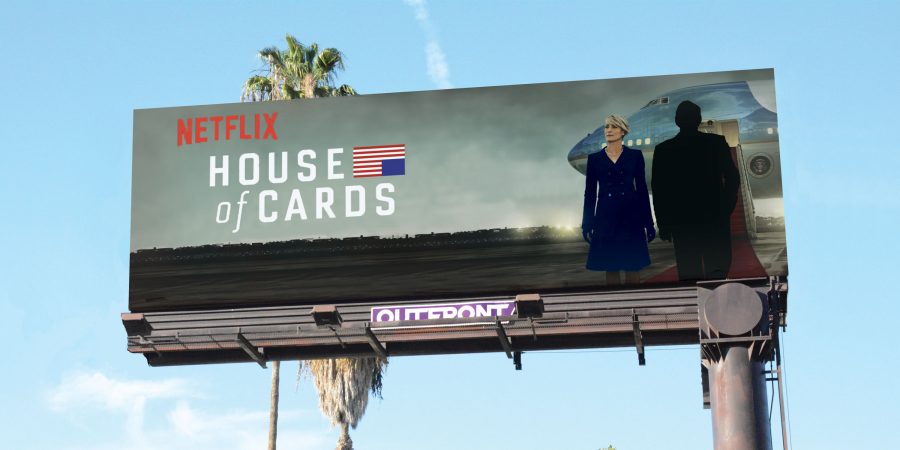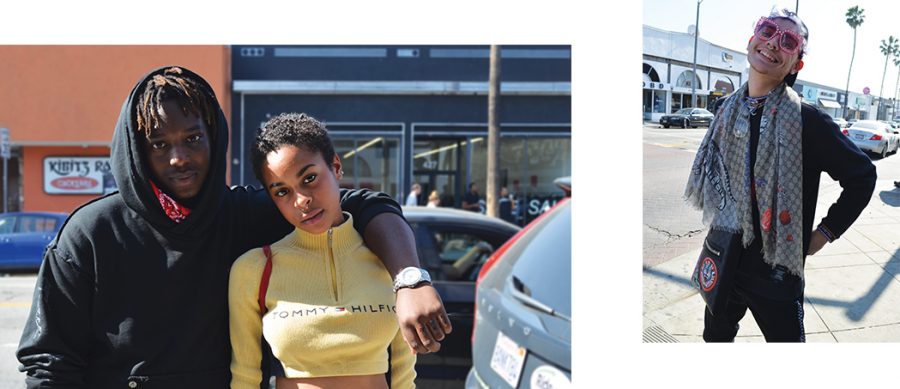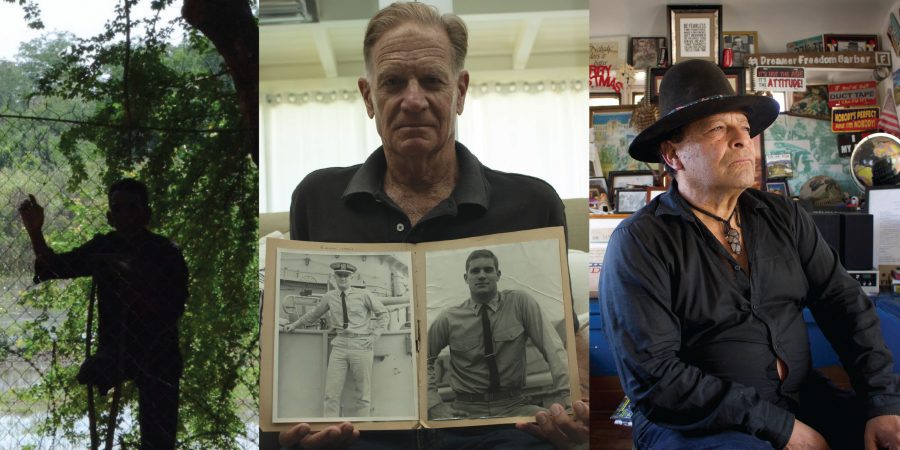Harvey Weinstein, Kevin Spacey, Louis C.K., Woody Allen, Ed Westwick, Dustin Hoffman, Matt Lauer. Before those names filled our news feeds, their movies and TV shows monopolized our screens.
Today, in the wake of the troubling sexual violence allegations against these men, the question emerges of whether or not it is morally permissible to continue to watch their movies and TV shows.
I first grappled with the question in October of last year when I read actor Anthony Rapp’s harrowing account of Kevin Spacey’s inappropriate sexual advances on Buzzfeed. Usually a source of lighthearted articles and quizzes, Buzzfeed instead detailed the twisted behavior of a prominent and long-celebrated actor. Although it was Spacey’s sexual assault that angered and disturbed me, I admit I also thought of how I hadn’t finished season five of “House of Cards”––would it be okay to watch now? Upon some self-reflection, I decided that I would not be able to watch the show. I couldn’t separate the art from the artist because Frank Underwood and Kevin Spacey were one and the same. His depravity transcended a fictional script.
However, what would the moral implications be if I did watch the show?
Jess Grody ’19 said she thinks it is a question people must answer for themselves based on their own moral codes and how they interpret art.
“I feel caught between separating the art from the artist, but also not wanting to support people who have behaved in horrible ways,” Grody said. “I disagree so strongly with what they’ve done, and yet I really enjoy their art. I don’t know where I draw the line yet. I still have to figure it out.”
Concluding that the crime of sexual assault takes precedence over the art of film, Co-president of La Femme Ashley Starr ’18 said she will no longer watch movies or TV shows that involve people who have been accused of sexual violence.
“By watching their movies and continuing to support them, then that sends the message that it’s okay, and they can get away with those things without consequences,” Starr said. “In order to prevent the problem from continuing in the future, we should stop supporting people who have sexually assaulted. If we stop supporting them, then people will stop [sexually assaulting and harassing], hopefully.”
Since she believes the predators would gain notoriety regardless, Starr said that it is irrelevant to her whether or not the predators would financially benefit from viewership.
Ethics Bowl team member Jenna Wong ’19 also said she would not feel comfortable watching movies or TV shows with sexual predators, believing it to be immoral to continue to do so with public allegations made against them.
“You have an obligation to act upon your knowledge; that’s the whole point of knowing something,” Wong said. “To act on that knowledge means you would have to boycott that movie.”
Adrian*, on the other hand, said she thinks financial benefits dictate the moral implications of watching movies or TV with people accused of sexual violence.
Adrian said she ardently condemns the men accused of sexual violence, but she said she feels that she can still enjoy their work, as long as she watches on a pirated website where the actors, directors and producers do not profit.
“If I were to pay to watch a movie with someone who had been accused of sexual harassment, I’d be financially supporting them, and it’s specifically important that the behavior of those who sexually harass people is not supported,” Adrian said. “It feels morally wrong to support them because I don’t think people who sexually assault people should be paid for a job they’re doing. I think they should be out of a job. If I were to watch on a legal website and pay for even a small portion of their profits, even if it were a drop in the bucket to them, I wouldn’t feel morally justified in doing it.”
Emmanuel Zilber ’19 said he does not think taking away profit from each person involved in a project is the right answer. Seeing it as a form of collective punishment, Zilber said he believes that people should still be able to appreciate a movie or TV show even if it involves someone who sexually assaulted or harassed.
“It’s something more than what that one person has done,” Zilber said. “It’s a collaboration between many different people and their art, and I think it should still be treated as such. I don’t think all the hard work all those other people put into it should be thrown away because of one person’s bad actions.”
Zilber also said he does not have trouble separating the art from the artist.
“When I’m appreciating a work of art, I’m not condoning the artist or what they’ve done,” Zilber said. “I’m more appreciating what they’ve contributed to their specific field. I don’t think that makes me a bad person.”
Similarly, Ethics Bowl advisor Malina Mamigonian said she believes that an artist’s actions should not influence an interpretation of the art.
“Everyone has the right to expression,” Mamigonian said. “We have to take the artist’s culture, his or her context into account when we experience any work of art. That gives us a much deeper, richer experience, regardless of the mixed feelings that may arise as a result, because we learn from that as well.”
Although separating an artists from their art may be justified when looking back upon artists who reflected the public opinion of their time, is it still substantiated when discussing the artists of today?
Starr said she believes we need to set a firm boundary for artists today that makes it clear sexual violence will not be tolerated.
“When you watch a movie with someone who has been accused of sexual [violence], you, all around, are supporting them as people, giving them a financial boost and an ego boost that they don’t deserve,” Starr said. “Continuing to support them sets a precedent that they can be successful in Hollywood, and that their crime won’t affect their life or success. Especially now, we need to act so they know that their crime will impact them. It’s not okay, and they won’t be able to get away with it and still be successful.”
Woody Allen is one actor and director who is facing new criticism for his past predatory behavior. Actors and actresses who have worked with Allen in the past, notably actor Timothée Chalamet, are expressing regret for working with Allen.
Even though actor Chalamet worked with Woody Allen in his upcoming movie “A Rainy Day in New York,” Starr said she thinks Chalamet’s expiation afterward did help hold Allen accountable for his acts of sexual violence.
Chalamet explained in an Instagram post that he has learned that standing up to injustice is more important than a movie role. He said he was going to donate his earnings from Woody Allen’s “A Rainy Day in New York” to the Time’s Up Legal Defense Fund, the LGBT Center in New York and the Rape, Abuse & Incest National Network.
In 1992, Allen’s adopted daughter Dylan Farrow accused Allen of molesting her when she was seven years old. The year before, Allen also began an affair with his wife’s adopted daughter.
Despite Hollywood and the public overlooking Allen’s predatory actions for the past 25 years, the #MeToo movement has given Farrow a new opportunity to shed light on Allen’s sexual abuse.
Farrow revealed more details of the abuse in an interview with journalist Gayle King on Jan. 18. Farrow also pointed out the hypocrisy and complacency of the actors and actresses who both acted in Allen’s movies and claimed to support Time’s Up, an organization created to stop sexual harassment in the workplace.
In an effort to no longer participate in a paradigm in which sexual violence goes unpunished, studios in the entertainment industry have also started implementing zero tolerance policies for sexual misconduct.
Shannon Johnson, Vice President of Legal Affairs at ABC, said that contracts throughout the entertainment industry now include enhanced morality clauses so that studios can terminate actors, producers and directors who behave inappropriately toward other employees within the company.
“Sometimes, there is a gray area, or it doesn’t rise to the level of sexual assault, but it’s still improper and it’s still violative of another person in the workplace,” Johnson said. “In addition, when you say in a contract ‘violating a law’ or ‘committing negligence,’ that goes to finding a fact to take them to court to prove that they violated the law. In some cases, there isn’t enough evidence to do that, so we still need the right to be able to terminate their agreements.”
With this morality clause in mind, Adrian said she is optimistic that in the near future she will not need to turn to illegal websites in order to avoid financially supporting people in the entertainment industry who have committed sexual violence.
“I really do hope that the structure of our society is shifting,” Adrian said. “I don’t want to have to choose between watching movies I enjoy or condemning predators. Predators should not be involved in making TV shows or movies. They should not have any sort of platform, and I hope this new [clause] and Time’s Up put an end to that.”
*Names have been changed.




































